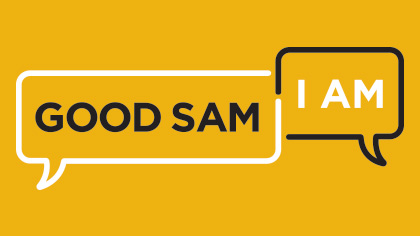Good Samaritan Policy FAQs

Q. What is the purpose of the Good Samaritan Policy if you are not supposed to drink under the age of 21?
At Loyola University Chicago, student safety is our top priority. In incidents of crisis or medical emergency, Loyola students are expected to care for themselves and for others in the Loyola community by getting help from appropriate officials even when violations of the Community Standards (i.e. underage drinking) have occured. Because the University understands that fear of disciplinary actions or the perception that you are getting your friend in trouble may be a barrier for students calling for help, the Good Samaritan Policy was created to make it easier for students to get emergency assistance for their friends.
Q. Explain what the Good Sam policy means for me as a student...
The Good Samaritan policy states that if your friend has been drinking or doing drugs and needs medical attention, please get them help. If you get them help, stay with them, and follow up with campus safety or the conduct office (OSCCR) afterwards, neither you or your friend will be found responsible for your own consumption even if you had also been drinking or doing drugs.
Q. Will I still get in trouble if I am underage and have been drinking if I call for somebody else?
From the Community Standards: No formal University disciplinary conduct record will be assigned to the reporting student(s) for (1) Category A alcohol or (2) Category A or B drug violations relating to the incident.The incident will not appear on your record and you will not be fined by the university. However, the incident will be documented and you may have to meet with OSCCR to follow up. Depending on the situation, you may need to complete an educational and/or health intervention such as alcohol education as a condition of deferring disciplinary sanctions. These interventions are provided to educate you and make sure this type of incident does not happen again. *Failure of students to take responsible action under this policy where action is clearly warranted and harm results may, in egregious circumstances, constitute “abusive conduct” under the Community Standards and will void all protections under this provision.
Q. Can I call on myself?
Yes. As of summer 2016, the Good Samaritan policy does provide medical amnesty for students who report their own medical emergency. The student will still be asked to meet with OSCCR to talk through what happened- our end goal is to make sure we work with you to prevent it from happening again. You also may be responsible for an ambulance bill if emergency personnel decide that it is necessary to transport you to the hospital. Students are not allowed to refuse a hospital transport if the emergency responder decides it is necessary. Also, students may have to complete an educational/health intervention as a condition of deferring disciplinary action.
Q. Can Good Sam be used for multiple people?
Yes. The Good Samaritan Policy can be applied to multiple people in one incident. The policy is intended to encourage students to make the right call for any and all individuals who are in need or medical attention.
Q. Can the Good Sam policy be applied to more than just alcohol?
Yes. The Good Samaritan Policy can be applied to crisis situations involving alcohol, drugs, and/or sexual misconduct or situations involving any combination of these.
Q. Is there a limit to the number of times the Good Sam policy can be utilized?
No. Students are encouraged to look after their friends and peers and are expected to take responsible actions anytime they are necessary.
However, this policy does not protect repeated, flagrant, or serious violations of the Community Standards (e.g. abusive conduct, sexual misconduct, distribution of alcohol or drugs, hazing, theft, Good Neighbor Policy violations, property damage, etc.) or violations that caused harm to another person requiring emergency response.
Q: What are my responsibilities when using Good Sam?
The Good Samaritan policy is a chance for you to act as an active bystander when you have determined that a situation requires more help than you can provide, even when violations of the community standards have occurred. Students should take the following steps to comply with the Good Sam policy:
1. Get Help: Contact Campus Safety (773.508.7233), Residence Life, or other emergency official
2. Stay with the Individual(s): Stay with the student needing help and cooperate with the responding emergency personnel
3. Follow up Afterward: Meet with appropriate University officials and cooperate with any investigation
Q. How do I aid a friend who I feel is in need of medical attention?
The best option when you feel somebody is in need of medical attention is to seek help. Remember the 3 steps to comply with Good Sam: Get Help, Stay with the Individual, Follow up Afterwards. After you call for help, do not leave the individual alone. Ask for help from others if necessary and follow these pieces of advice:
- DO: Turn the person on their side to prevent choking in case the person vomits.
- DO: Be prepared to tell emergency personnel as much information as possible, including the amount and type of alcohol/substances consumed.
- DO NOT: Leave the person alone.
- DO NOT: Leave the person on their back.
- DO NOT: Try to make the person vomit
- DO NOT: Try to get the person to eat or drink anything, even water at this point
- DO NOT: Put the person in a cold shower/bath (this could cause shock to their body)
